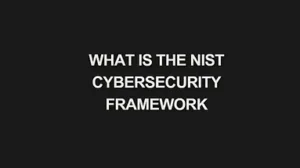In today’s interconnected world, the governance of the internet is not solely the domain of governments and regulatory bodies. Corporations wield significant influence over internet governance, shaping policies and practices that can have far-reaching implications for users, businesses, and societies at large. This article explores the various ways in which corporate influence manifests in internet governance and examines the implications of this influence on the digital landscape.
The Power of Tech Giants: A Dominant Force in Internet Governance
The rise of multinational tech giants like Google, Facebook, Amazon, and Microsoft has fundamentally altered the dynamics of internet governance. These companies command enormous resources, enjoy widespread user bases, and exert considerable influence over the digital landscape. From content moderation and data privacy to market competition and algorithmic transparency, corporate decisions often intersect with key governance issues, prompting questions about accountability, transparency, and the balance of power.
Lobbying and Policy Advocacy: Shaping Legislative Agendas
One of the most prominent ways in which corporations influence internet governance is through their lobbying efforts and engagement with policymakers. Tech companies deploy vast teams of lobbyists to advocate for policies that align with their business interests, often focusing on issues such as intellectual property rights, data protection regulations, and net neutrality. By leveraging their financial resources and industry expertise, corporations can shape legislative agendas and regulatory frameworks in ways that benefit their bottom line.
Participation in Multi-Stakeholder Initiatives: Collaboration and Influence
Corporate influence extends beyond formal lobbying activities to include participation in industry consortia, standards-setting bodies, and multi-stakeholder initiatives. Through these forums, companies collaborate with other stakeholders, including governments, civil society organizations, and academic institutions, to develop technical standards, protocols, and best practices that govern various aspects of the internet. While such collaborations can foster innovation and interoperability, they also raise concerns about undue corporate influence and the potential for conflicts of interest.
Gatekeepers of the Digital Realm: Control Over Platforms and Services
Another key avenue through which corporations exert influence over internet governance is through their control over digital platforms and services. As gatekeepers of online content and communication channels, tech companies have the power to shape user experiences, influence public discourse, and control access to information. This influence is particularly pronounced in the realm of content moderation, where companies make decisions about what content is allowed or prohibited on their platforms, often based on their own community standards and terms of service.
Market Dynamics and Competition: Balancing Innovation and Monopoly Concerns
Additionally, corporations play a central role in shaping market dynamics and competition in the digital marketplace. The dominance of tech giants in sectors such as search, social media, e-commerce, and cloud computing has raised concerns about monopolistic practices, anti-competitive behavior, and the concentration of economic power. Efforts to regulate or curb the influence of these corporate behemoths have prompted debates about the appropriate balance between competition, innovation, and consumer protection in the digital economy.
Conclusion
Corporate influence on internet governance is a multifaceted and complex phenomenon that intersects with a range of economic, social, and political issues. While corporations contribute to innovation, economic growth, and digital transformation, their power and influence also raise important questions about accountability, transparency, and democratic governance in the digital age. As we navigate the challenges and opportunities of the internet ecosystem, it is essential to strike a balance that promotes innovation, protects user rights, and fosters a fair and inclusive digital society.




You’ve hit on such an important topic—corporate dominance in internet governance isn’t just about policy, but also about values and accountability. I’d love to see more discussion around how multi-stakeholder models are adapting (or not) to this shift.
It’s fascinating how tech giants have transitioned from service providers to major policymakers in the digital space. I wonder what mechanisms could be introduced to ensure more transparency and accountability without stifling innovation or growth?
It’s striking how much sway companies like Google and Meta have over digital policies. I wonder how multistakeholder models can be strengthened to balance this influence.
It’s a delicate balance, isn’t it? We want the innovation that tech companies bring, but at the same time, their influence on internet governance needs to be carefully managed to avoid monopolistic practices and protect user privacy.
This piece raises an important concern—how do we ensure transparency when private companies are effectively setting global digital standards? It feels like public oversight mechanisms haven’t kept up with the pace of corporate influence, and that gap is becoming more problematic as tech giants continue to expand their reach.
The discussion around tech giants acting as gatekeepers really resonated. It’s concerning how platform decisions, like content moderation or algorithm changes, can subtly shift public discourse without broader accountability.
The section on gatekeepers really resonated—platform control is often overlooked in governance debates, yet it’s where many real-world decisions are made. How can we ensure transparency and accountability at this level without stifling innovation?
Wow, who knew corporations could be so powerful? It’s like they’re running the internet from a secret lair or something. Total sci-fi vibes, right?
I mean, if tech giants can lobby like pros, I should definitely start my own lobbying group—where do I sign up? Maybe I’ll just champion snacks as a human right.
The idea of companies deciding what’s okay online feels like letting the fox guard the henhouse. Seems safe… said no one ever.
And here I thought the internet was a free-for-all. Guess it’s more like a ‘pay-for-access’ situation. How quaint!
This post highlights an important tension: while techBlog comment creation giants drive innovation and connectivity, their dominance also means they effectively set the rules of engagement online. I think one of the biggest challenges ahead is ensuring that multi-stakeholder initiatives don’t just become symbolic, but actually balance corporate power with the needs of smaller players and end users.
It’s interesting to see how corporate interests now play such a central role in shaping internet governance. The balance between corporate power and public interest seems increasingly difficult to strike, especially when companies have so much at stake in the policies being developed.